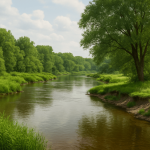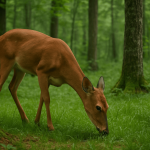Ecocline
- Ecocline is a zone of gradual but continuous change from one ecosystem to another when there is no sharp boundary between the two in terms of species composition.
- Ecocline occurs across the environmental gradient (gradual change in abiotic factors such as altitude, temperature (thermocline), salinity (halocline), depth, etc.
Ecotopes
- Ecotopes are the smallest ecologically distinct landscape features in a landscape mapping and classification system.
- They represent relatively homogenous spatially explicit landscape units which are useful for stratifying landscapes into ecologically distinct features for measurement and mapping of landscape structure, function and change.
Niche
- Niche refers to the unique functional role and position of a species in its habitat or ecosystem.
- The functional characteristics of a species in its habitat is referred to as “niche” in that common habitat.
Edge Effect
- Edge effect refers to the changes in population or community structures that occur at the boundary of two habitats (ecotone).
- Sometimes the number of species and the population density of some of the species in the ecotone is much greater than either community.
- The organisms which occur primarily or most abundantly in this zone are known as edge species.
Energy Flow
- Energy flow is the flow of energy through living things within an ecosystem.
- Nearly all of the energy in Earth’s ecosystems originates within the Sun. Once this solar energy reaches Earth, it is distributed among ecosystems in an extremely complex manner.
- This flow from producer to top consumers is called energy flow, and is unidirectional in nature.


